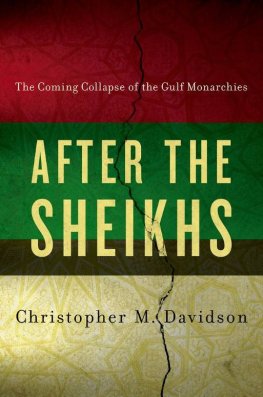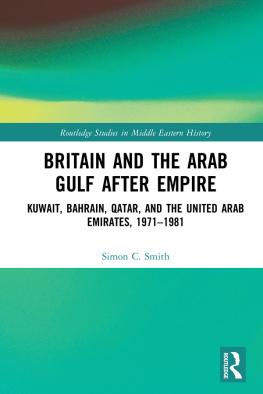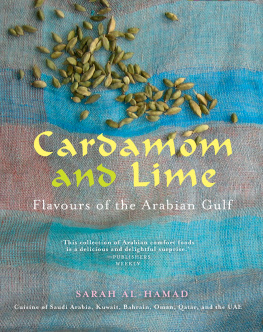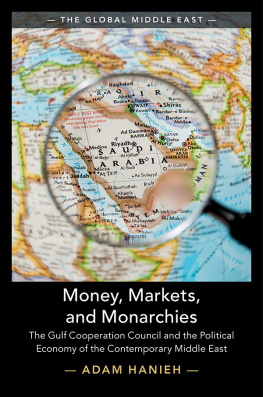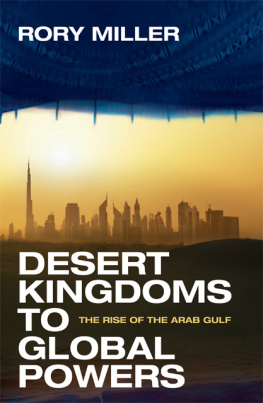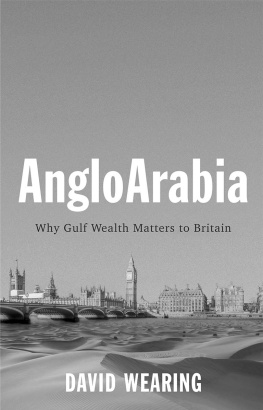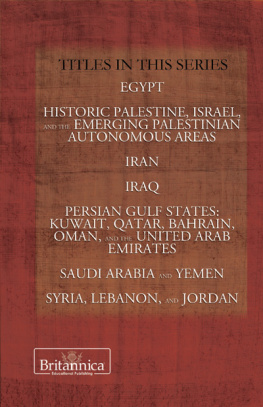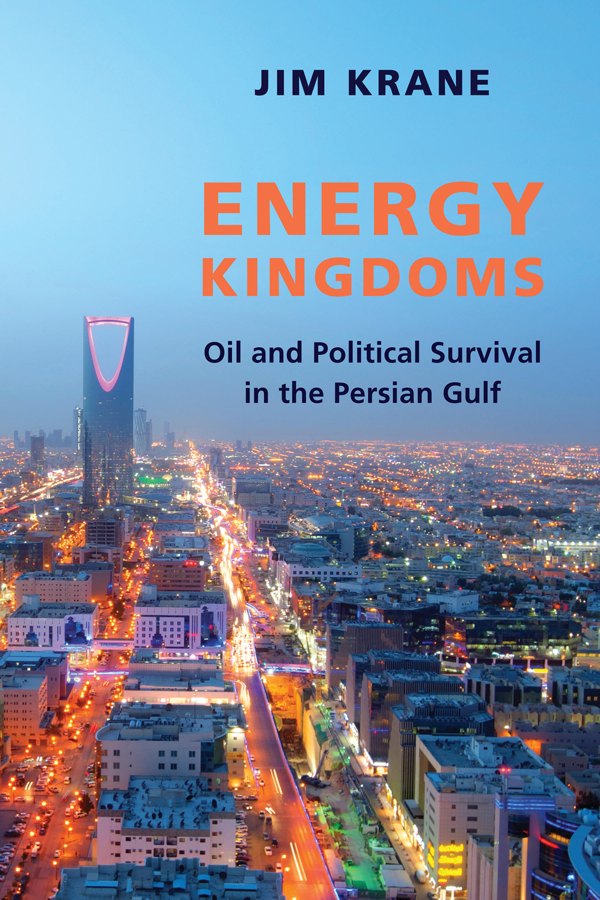Contents
Guide
Pagebreaks of the print version
ENERGY KINGDOMS
CENTER ON GLOBAL ENERGY POLICY SERIES
CENTER ON GLOBAL ENERGY POLICY SERIES
Jason Bordoff, series editor
Making smart energy policy choices requires approaching energy as a complex and multifaceted system in which decision makers must balance economic, security, and environmental priorities. Too often, the public debate is dominated by platitudes and polarization. Columbia Universitys Center on Global Energy Policy at SIPA seeks to enrich the quality of energy dialogue and policy by providing an independent and nonpartisan platform for timely analysis and recommendations to address todays most pressing energy challenges. The Center on Global Energy Policy Series extends that mission by offering readers accessible, policy-relevant books that have as their foundation the academic rigor of one of the worlds great research universities.
Robert McNally, Crude Volatility: The History and the Future of Boom-Bust Oil Prices
Daniel Raimi, The Fracking Debate: The Risks, Benefits, and Uncertainties of the Shale Revolution
Richard Nephew, The Art of Sanctions: A View from the Field
ENERGY KINGDOMS
OIL AND POLITICAL SURVIVAL IN THE PERSIAN GULF

JIM KRANE
Columbia University Press
New York

Columbia University Press
Publishers Since 1893
New YorkChichester, West Sussex
cup.columbia.edu
Copyright 2019 Columbia University Press
All rights reserved
E-ISBN 978-0-231-54892-2
Library of Congress Cataloging-in-Publication Data
Names: Krane, Jim, author.
Title: Energy kingdoms : oil and political survival in the Persian Gulf / Jim Krane.
Other titles: Center on Global Energy Policy series.
Description: New York : Columbia University Press, 2019. | Series: Center on Global Energy Policy series | Includes bibliographical references and index.
Identifiers: LCCN 2018027640 | ISBN 9780231179300 (cloth : alk. paper)
Subjects: LCSH: Petroleum industry and tradePersian Gulf Region. | Petroleum industry and tradePolitical aspectsPersian Gulf Region. | Energy consumptionPersian Gulf Region. | Energy policyPersian Gulf Region.
Classification: LCC HD9576.P52 K73 2019 | DDC 338.2/72809536dc23
LC record available at https://lccn.loc.gov/2018027640
A Columbia University Press E-book.
CUP would be pleased to hear about your reading experience with this e-book at .
Cover image: Hansmusa / Alamy Stock Photo
FOR CONNIE

CONTENTS
I spent four and a half years living in the Persian Gulf, from 2005 through 2009, and have had the good fortune to return many times since. I found in these six countries a disarming warmth and hospitality and a profound natural beauty. I was unprepared for the huge amount of personal interest that I would develop in the region.
The Gulf is beset by a number of urgent problems, just one of which is covered here. The importance of energy to daily life was driven home to me during a blackout in Dubai. There was no escaping the 110F (40C) heat, which was magnified by the design of buildings that quickly trapped heat and offered no means to vent it. The experience made tangible for me that energy policy in these producer states needs to be recalibrated for the longer term, rather than for a short era of conspicuous consumption. This book examines the drivers behind the Gulfs profligate treatment of its domestic energy resources, the damage that overconsumption has brought, and the pathways toward a more sustainable and enlightened understanding of the fossil fuels that have transformed the region.
None of the research in this book would have been possible without the assistance of dozens of people, who contributed in ways large and small. I made numerous friends in the region, many of whom helped in some way, whether offering places to sleep, shared meals, anecdotes over a beer, arguments (clarifications!), emailed links, or even copies of their electricity bills.
I also met my wonderful wife, Chloe, in nearby Baghdad, and the explorations of the Gulf that I describe in this book and my previous one were done as much through Chloes eyes as mine. Saying I couldnt have done it without her is an understatement. Our adventures ranged from hikes among the mountain villages and canyons of Ras al-Khaimah to our secret campsites in Fujairah, the Musandam, Jebel Misht, and, most memorably, Jebel Rawdah; our breakfasts on the beach; and cocktails among the dunes and atop the Burj al-Arab. Best of all was the birth and first year of life of our son, Jay.
After leaving the Gulf, we spent our next four years together in Cambridge, whereon the first day of my doctoral studiesChloe gave birth to our daughter, Connie, to whom this work is dedicated. While Cambridge was more work than fun, I came to enjoy its eccentricities, its medieval pubs, and cycling under vast East Anglian skies churning with clouds. Chloes backing was crucial in allowing me to spend a year doing fieldwork in the Gulf, which I did in numerous three-week jaunts to all six countries.
At Cambridge I was lucky to work under the impressive faculties of David Reiner, whose knowledge of literature in political science, economics, and energy policy is matched by his affability and dedication. I am grateful for his diligence in providing comments and edits that helped shape this book. We held many of our discussions at ancient pubs in the medieval city as well as in attendance at two fabulous Cambridge Beer Festivals.
Since leaving Cambridge, I have been extremely lucky to find myself employed by the Baker Institute for Public Policy at Rice University, in Houston. Rice deftly combines intellectual power and Southern grace on a campus replete with live oaks, drenching humidity, and high-level policy discussions. At Baker, I owe a huge thank you to Ken Medlock, the director at the Center for Energy Studies, and Ambassador Edward Djerejian, the institutes founding director. Ken in particular has helped shape my thinking on energy, as have the regular debates and events at the center. For endowing my research fellowship at the institute I also owe a giant debt of gratitude to Wally Wilson, a supremely kind and generous Houstonian with whom Ive swapped many a tale of Middle Eastern intrigue. Also at Rice, I am indebted to Elsie Hung for diligent research support, particularly with data gathered to illustrate this manuscript; Marwa Shalaby, who provided statistical assistance with one of my chapters; Mohammad Tabaar, who provided comments and insights on my Iran material; and my colleagues Nathan Citino and Yasser Faquih, who provided input or source material. Pedro Rodriguez of the IMF helped me convert his demand equation for use with my price-elasticity calculations in , as did Rices Mark Agerton and Sean Leong. Also helpful along the way were Kristian Coates-Ulrichsen, now a colleague at Rice, who provided comments on my nearly finished manuscript and often read and critiqued early work, as did Mary Ann Ttreault, Pete Moore, Jocelyn Sage Mitchell, and Matthew Gray. Mike Wood at the Kuwait Ministry of Electricity and Water provided useful details and encouragement, and Abdullah Baabood at Qatar University helped with the accuracy of my Oman anecdotes.


